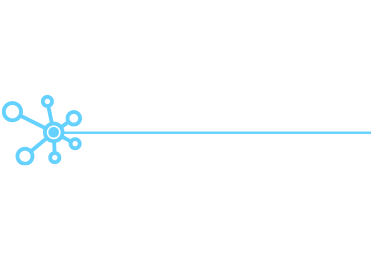At the end of April, the number of COVID-19 cases in the USA has surpassed 1 million with more than 63,000 deaths from the coronavirus infection. In comparison to other countries such as Germany and South Korea which had significant drops in their number of COVID-19 cases and fatality rate in the span of 2-3 months, the USA requires a great deal of coping up particularly in the matter of mass testing.
Wider access to testing is credited as the key movement for the quick and efficient control of coronavirus cases in the aforementioned countries, an initiative that is currently being adapted by the national government.
However, a few arguments surface up in how to conduct the said testing procedures. Health care professionals have faced unfortunate inadequacy in the workforce given that they are consistently exposed to the threat of coronavirus infection, and some of them have caught the virus while on duty. Others are concerned with the number of testing kits available for public use.
Thereby, private companies are now introducing the concepts of medically supervised testing at-home or remote sites to help businesses.
Current Testing for coronavirus infection
According to the Centers for Disease Control and Prevention (CDC), current testing for coronavirus infection comes in 2 types: viral tests and antibody tests.
Viral test or diagnostic test detects the presence of coronavirus via nasal and throat swabs. It follows a procedure in which the specimen is subjected to a device known as RT-PCR to determine the presence of the genetic material of the virus in the form of RNAs. This test is considered the most widely used testing protocol across the globe.
Antibody test or immunological test identifies the presence of antibodies, specifically the IgG and IgM antibodies that are produced by the immune system when an infection is traced. This type of test usually comes in the form of serological testing or blood testing. A small amount of blood sample is drawn via finger prick and subjected to antibody evaluation. Despite potential confirmatory tests, immunological testing does not necessarily focus on detecting the current presence of coronavirus. Instead, it highlights the immune-response of the patient towards the virus, indicating that the patient may have contracted the virus and currently has antibodies..
Advantages of At-home Medically Supervised Testing for COVID-19
Performing tests for COVID-19 infection at the comforts of a patients’ home is a promising leap in our battle against the pandemic. Here are some advantages that we can gain from at-home medically supervised testing kits for COVID-19.
- Convenience – Since the testing is done at home, the process becomes easier and more comfortable for clients. It reduces anxiety as it is performed privately instead of going to a public laboratory facility.
- Safety and Protection – As the testing is done at the safe environment of your home, it releases the burden of going to a medical facility and potentially increasing exposure to COVID-19 for both other people and the patient. Our team also takes safety as their prime focus is with appropriate Personal Protective Equipment and other measures.
- Confidentiality – The stigma of COVID-19 had some significant effect on the morale and recovery of the patient. Having tested in a safe and exclusive space protects the identity of the patient and eases the treatment.
- Integrity of the Test – Unlike any other self-administered at-home tests, testing performed by a medical professional guarantees more accuracy especially in the process of sample collection..
Further Developments
As the outcry for mass testing took a higher volume, it is undeniable that the availability of at-home testing for COVID-19 by a medical professional will benefit the government, and the general public.
In this sense, private companies and laboratories are addressing the potential loopholes of an at-home testing including variations in the specimen collections. Immunological testing requires blood sample collection while other tests require saliva or sputum from the nasal cavity or throat. Accurate testing time is also being further analyzed based on current and updated information about the coronavirus.
Sample collection is critical in preparing the specimen for analysis. Naturally, healthcare professionals are more competent in performing this procedure and lay citizens are mostly inexperienced, thereby, the risk of inaccurate sample collection is higher.
COVID-19 Telehealth Screening
While waiting for the availability of these at-home medically supervised testing, telemedicine providers like the Synergy Health Advisors currently offers free COVID-19 Telehealth Screening to assist you in securing the medical care for the detection of COVID-19 symptoms, proper diagnosis, and treatment.
The goal of the COVID-19 telehealth screening is to make the entire process of managing COVID-19 infection effective and easier for its clients. If you are showing symptoms of COVID-19 infection such as dry cough, fever, sore throat, and fatigue you may avail the free COVID-19 telehealth screening to conveniently guide you through proper healthcare processes.
Conclusion
It is important to understand that these promoted at-home test kits will always require a doctor’s prescription hence despite being available for utilization, it is performed by a medical professional. Hence, telemedicine providers such as Synergy Health Advisors offer a safe, and accurate medical supervision in managing COVID-19 cases.
